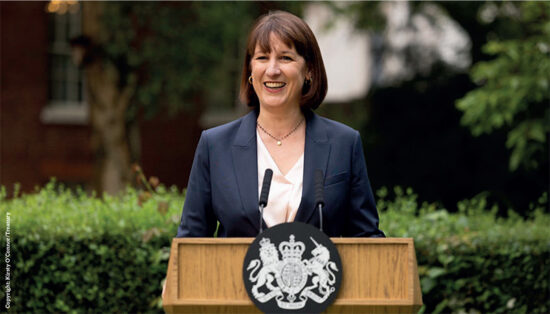Mark Battersby (MB): How do you define what an international platform is?
Bob Pain (BP): A platform is an ability to be able to trade, to have a system which you use for funds or products. I think people make too much of platforms. Most companies have a platform. It’s how sophisticated that platform or system happens to be, and how it interfaces with either intermediaries or clients directly.
Michael Rothwell (MR): I think you’ve touched on a great point there. All businesses have some form of platform. What we are really talking about is the party platforms, whether you call it outsourcing or not, having some other supplier provide the underpinning infrastructure in investment systems, technology, administration, custody or any part of those components. So it can be a multitude of things to a multitude of businesses.
Rex Cowley (RC): The understanding of the proposition dictates the make-up of the platform. So you have your business-to-business platforms as opposed to retail platforms. The [basic] definition is ‘something that offers custody and trading and settlement’. Then you have got the next layer up, which is the technology-enabled piece – the ability to add on the tax wrappers, the reporting tools and the front-end online.
MB: How helpful do you think the ‘offshore’ label is?
John Martin (JM): Offshore has connotations. We prefer the word ‘international’.
John Pauly (JP): I’m based in Luxembourg, and [therefore] I am as far away from offshore as I could possibly be. I think about having a proposition for domestic clients, with primarily domestic products, and a [separate] international proposition for international clients who are outside of your jurisdiction, with international products.
Michael Fordham (MF): When I think about platforms, I narrow down the scope to those that either serve clients directly, or adviser-based platforms, which is the space we are playing in. We see two sorts of international business – clients abroad who want to use our UK service, and expats with assets in the UK, which could be Sipps and ISAs. We have people in the UK who have assets abroad, like QROPS, and others who have moved into the UK with assets abroad, and want to keep them outside the UK. We also have IFAs in Malta and Gibraltar.
Helen Burggraf (HB): The big difference between the international platforms and those in the UK is that they are multi-currency, multi-language and they offer offshore funds, which the UK platforms, if I’m not mistaken, are quite limited in. Is that right?
MF: That’s true, and [it is why] when we were looking to put together an international platform, we went out and had a discussion with a number of firms. What they wanted was the following: the assets outside the UK, no contract with a UK company for IHT reasons, and genuine multi-currency [capability] so every time you got a 7% dividend, you weren’t forced into a currency conversion.
MB: What are the reasons for locating platforms in a particular jurisdiction?
David Simpson (DS): It really depends on the markets you are trying to serve. A number of our [adviser] clients are looking at an international platform, [just] not necessarily serving UK clients. They are trying to access other markets, or they have businesses in other markets.
The other challenge that we see is from the data secrecy perspective. The rules have changed and are changing, so that’s becoming less of a concern with a fully disclosed model. Previously there has been concern about where the data was held and how it was accessed. The walls have been tumbling down slowly over the past few years, and that will continue.
The moment that worry goes [completely], the market will really open up around people who want to provide their platform services in different markets.
BP: My question to these guys is ‘who are your clients’? And from there, get into the right jurisdiction for the clients that you are supporting.
RC: If a business is looking to service an international market, that brings a lot of complexity, because of the different territories that you are going to be working in.
One of the reasons for having a business with multiple international custody hubs, whether it be Luxembourg, Cayman Islands, Isle of Man, Jersey or Geneva, is the reduction in complexity.
Typically, they are tax-neutral environments, and they don’t bring with them the complications you get in the UK.
The UK is incredibly complex in terms of tax, so to reduce that using neutral international jurisdictions for your custody centre makes an awful lot of sense. I think reducing the complexity is a big driver for setting up in a neutral jurisdiction.
MR: Pershing established in Jersey a year ago. We went through a huge amount of analysis, and the key driver for that was the client. We were looking for a place that was the right fit culturally, but also had the infrastructure, the regulation and the tax neutrality. Jersey ticked those boxes.
 MB: What about other jurisdictions?
MB: What about other jurisdictions?
John Martin (JM): We made a decision on Jersey for the same reasons. Is it neutral? Do people trust it? How comfortable do people feel about it? And, can you offer custody in other locations? We use HSBC as our custodian for fixed interest assets, and it is quite keen for us to custody those assets in Asia and not in Jersey.
BP: If you went into Latin America, where Investors Trust is big, everyone knows the Cayman Islands, and they don’t have a problem with them because it’s an Americas-focused jurisdiction exactly like Jersey, Luxembourg, Guernsey and Isle of Man are European jurisdictions.
MR: It’s very revealing that all the Crown Dependencies are putting huge investment into their international profile with offices in the Far East. Some of that is working, but it’s a long play, it’s about getting the recognition.
MB: How does the territory blur when you are looking at both expats and local clients?
JP: We have end clients based in 127 different countries. When you have a Chinese client on board, his level of expectation, when he defines what services levels he would like to see, is not the same as when you talk to a guy based in Brazil. So sitting somewhere in the middle, hoping to get it halfway right, is challenging.
DS: If you go back ten years, the perception – especially from the UK – of offshore solutions was Switzerland. It’s interesting that Switzerland does not seem to be competing in the same way that it did before. That’s because it’s a lot easier to do business in the Cayman Islands, Jersey, Guernsey and Luxembourg. On the funds side, over the past few years, Luxembourg has done a fantastic job in promoting itself.
MB: Should there be more offshore funds available on platforms?
RC: If you are looking at the UK, there should be a lot more funds available. However, if you’re looking at some of the international platforms, I’d say a lot of them are already there.
In the UK, you’ve got all the challenges in relation to the FSA, and its view on unregulated investment schemes, the costs of Ucits, and other regulatory costs that are coming in. All this is making the establishment of offshore funds that can be distributed quite difficult for the fund provider.
JP: I think it’s more of a challenge for the fund provider, not so much for the platform, because at the end of the day, I couldn’t care less. We put it on the platform if it makes sense.
The challenge for the platform when it goes international is that there are local fashions. The fund universe for the fund platform is a matter of cost.
MR: You can’t put every fund in the fund universe on a platform once you leave UK shores. The negotiation around these distribution agreements is too difficult. But I think the real need is to be responsive to your clients.
When we are talking to our clients, we get their ‘buy’ list. And we are making pledges to them to get those funds onto our platform.
There’s no point in having funds on our platform that nobody is investing in – though you do have some because they come with a distribution agreement.
JM: We don’t put a fund on there until someone says they want it. We say you can have anything you like, you just need to tell us in advance, as long as there is demand there. And the result of that is more than half of [our] assets are in direct equities, direct fixed interest and direct cash. They are not in funds.
MB: Who are your clients?
JM: They are IFAs, who will appoint the asset manager, who will run their accounts on the platform. It’s interesting that they are choosing more and more direct assets. They want beneficial ownership of the underlying assets, not a collective pool.
BP: In the past, I have been stunned by the flavour-of-the-month funds and, in some cases, the smaller companies that have got themselves into difficult positions.
That creates problems for the distributor and for the company that has the funds on them, because it’s the client that comes back to them and says, ‘I want the money out of this fund’.
Our view is that we would rather deal with the global brands, and I totally agree with people who say there are different flavours for different parts of the world.
There are, for example, America-based fund companies that our Asian clients have no interest in whatsoever.
My concern is choosing the right companies to partner with, because you can get into hot water in the international space if you choose the wrong partner.
MB: Can the international platform space emulate the success of the onshore equivalent?
DS: I’ve been an advocate of global platforms for a long time. In the European markets, traditionally it’s been a bancassurance model for a number of years, but if you look at the rise in the independent financial adviser model, it’s phenomenal. Platforms give access to investments rather than acting as a barrier to them, and if you look at what they are trying to do, then there is actually a new market.
In addition, if you look at product distribution in other parts of Europe, it is a traditionally very expensive model. So a good, saleable platform at the right cost definitely has a place.
MB: Why hasn’t it taken off more?
MR: There are a bunch of reasons. The first is a wide universe – multiple jurisdictions with multiple specific requirements. Second, the fragmented nature of the offshore market has historically meant there has been a diversity of players in comparison to the more homogenous UK market.
We see nothing but opportunity for our international business. We’ve done well in the UK and, for us, pushing out internationally what we’ve done successfully [here] is a huge world of opportunity. Nobody denies the vast sums of money that are out there, so we are definitely going to see success and growth.
MF: I agree there is huge opportunity. The UK market has come from nowhere in 2000 – when there was only one player, Transact, which went around educating the IFA sector as to what a platform was. It spent the first two years of its cash doing that, so we owe it a great debt of gratitude. RDR is going to be a huge driver in the UK. I cannot see any proper IFA business operating without being on a platform within two years.
RC: In the UK, the retail side has around £190bn on platforms, and if you add in the institutional space, it goes up to about £216bn. So there’s not much institutional platform money in the UK. If you go back to 2002, we had the old fund supermarkets, which are all rebate-driven models.
We are now going into wrap fees, so you are getting clean charging, doing away with trail fees to cross-subsidise platform revenues.
The onshore markets are going through significant change, and they demonstrate that there is an absolute desire to turn your business into something that has recurring revenues.
It’s this realisation that commission-based business models don’t work over the long term, and that if you want to have an exit, you’ve got to have something you can sell. That is what is driving change.
JP: I totally disagree, because that is all looking through very British glasses. This is not at all what is happening in the world. Trails are going to remain out there forever. I’ve followed the discussions in Europe, where top advisers will tell you that they have a model for clients who are fit for a commission basis, and clients who are fit for a fee. And they will tell you there is no one-size-fits-all solution.
BP: I’m not that concerned about how advisers are remunerated. Whether it’s trail or renewal for a life policy, or a percentage based on assets under management, the concept of being paid constantly for what advice you are giving a client over the lifetime of that particular client is the important thing.








